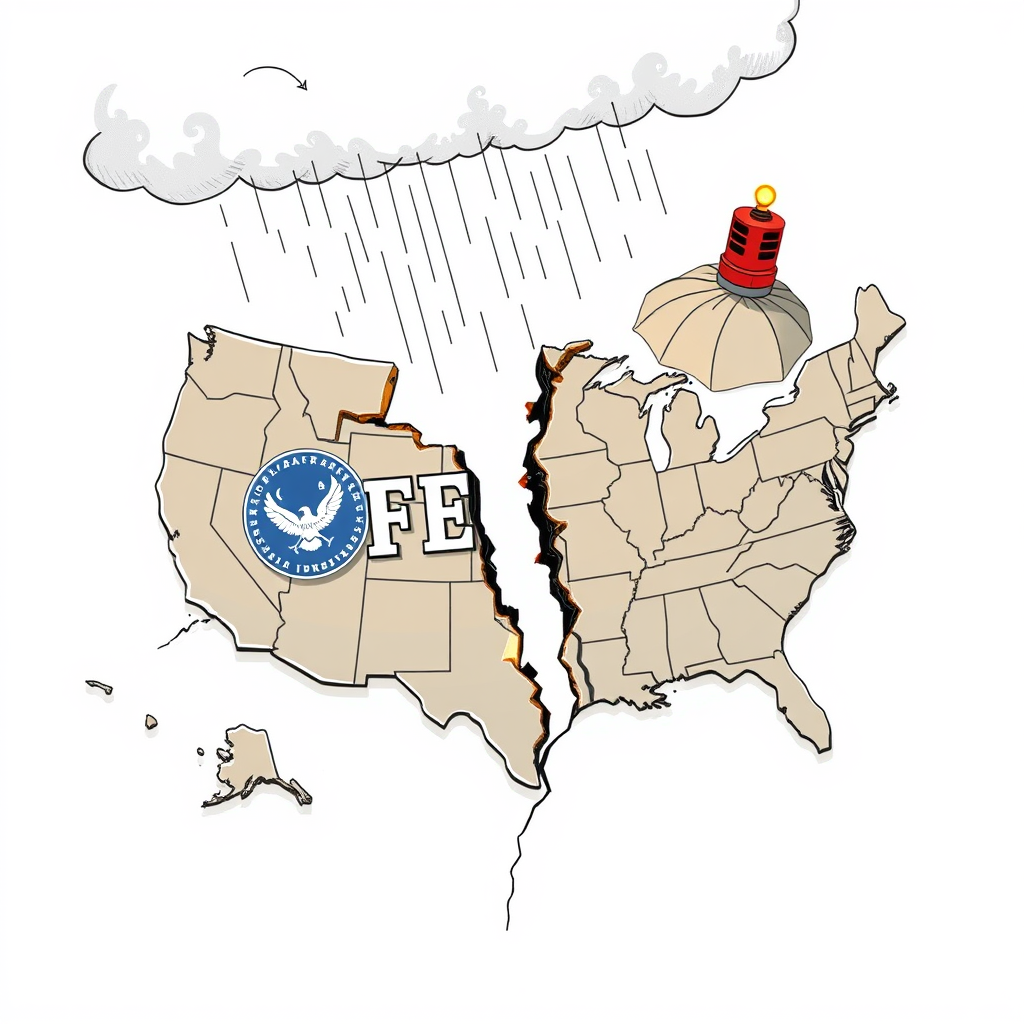FEMA Braces for Disaster as Agency Falters

A newly revealed internal report paints a deeply concerning picture of the Federal Emergency Management Agency’s readiness as hurricane season approaches. CNN’s Gabe Cohen reported that the agency is plagued by “general uncertainty” at all levels regarding its mission, deployment strategies, and funding allocation for upcoming storms. The report suggests a significant operational handicap, with officials admitting they lack clarity on how to effectively respond to disasters.
Contributing to this instability is a dramatic exodus of experienced personnel. Approximately 30% of FEMA’s permanent staff have departed, particularly those in critical leadership roles, following budget cuts. This loss of institutional knowledge is compounded by the Trump administration’s repeated attacks on the agency and stated intention to eliminate it altogether. The recent replacement of acting FEMA head Cameron Hamilton – after he publicly opposed dismantling the agency – with David Richardson, a combat veteran with a background in countering weapons of mass destruction, signals a significant shift in leadership and priorities.
One FEMA official described the likely outcome as a federal government that will be “either absent completely or, if present, sputtering to deliver response and recovery resources.” Another expressed a pervasive lack of confidence, stating they fear critical life-saving decisions will lack necessary support.
Senator Ed Markey (D-MA) characterized the report as a “blistering, scalding indictment” of the administration’s dismantling of FEMA, extending his criticism to include NOAA, NASA, and the Weather Service – all vital components of a comprehensive disaster response system.
This situation is deeply troubling. While political disagreements over agency funding and structure are commonplace, actively undermining FEMA before a potentially devastating hurricane season is reckless and irresponsible. The agency’s mission is to protect American lives and property, and deliberately weakening its capacity to do so, regardless of political motivations, is a dangerous gamble with potentially catastrophic consequences. The reported loss of experienced staff, coupled with the uncertainty surrounding the agency’s future, creates a recipe for disaster, and the public deserves a clear explanation of how the administration intends to address these critical shortcomings. It’s not simply about bureaucratic efficiency; it’s about ensuring a swift and effective response when communities are facing life-threatening emergencies.